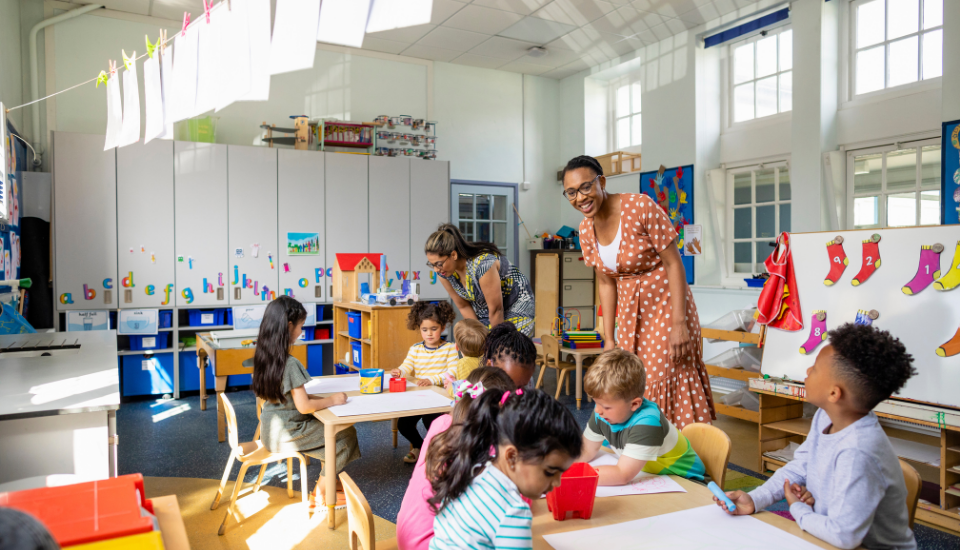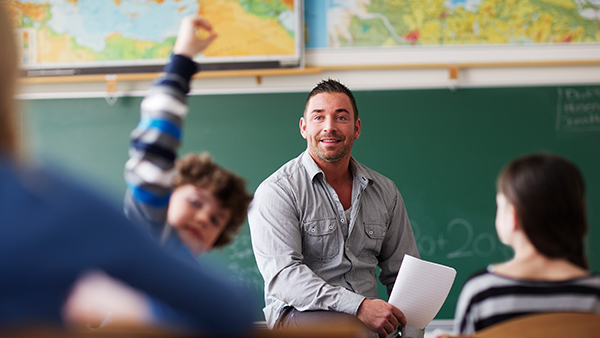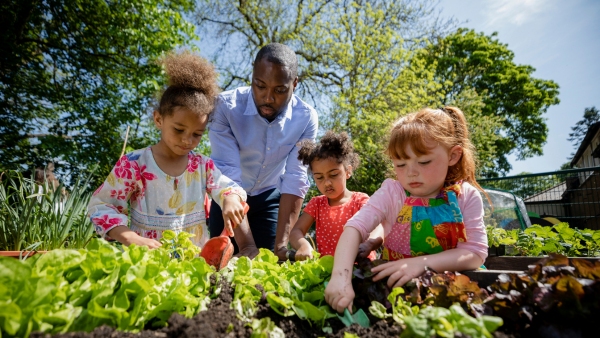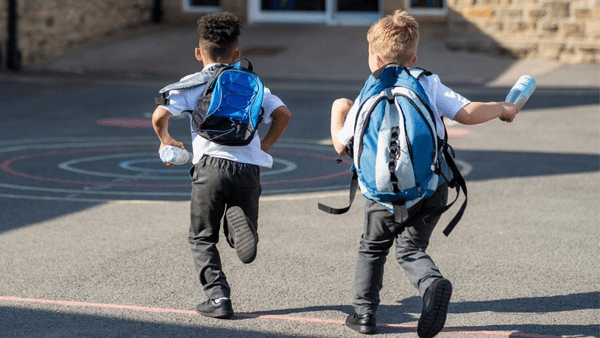The Third Benefit
Can participation in social action by our young people yield benefits beyond those of the individual and their community? How might the motivations and experiences of teachers involved in high-quality youth social action represent an as yet unexplored societal benefit?

Over the last three years in partnership with the Pears #iwill Fund, the RSA has explored how to best support primary schools to engage in high-quality youth social action.
We designed, delivered, and evaluated RSA4, a youth social action project for Year 4 pupils. Our Citizens of now report shares practical learnings from this project to enable more primary school teachers to engage in high-quality youth social action with their pupils.
Through this work, we found there are clear benefits to pupils and communities when young people are given the opportunity to make a difference to the issues they care about.
A third benefit?
Conversations around youth social action have largely focused on this 'double benefit' to communities and young people.
Where young people gain confidence and increase their sense of community agency by participating in youth social action, and communities benefit from the positive actions of compassionate and socially responsible young citizens, teachers may also benefit in similar ways.
Our project made me feel kind. Even if we are children we can still make a difference in the world.
We want everyone to have the chance to make a difference to our environment and give something back to our community.
We believe teachers’ motivations and experiences of high-quality youth social action represent an underexplored ‘third benefit’.
About the project
This project, The Third Benefit, builds on our existing work to help develop the sector’s understanding of high-quality youth social action at the primary phase.
Through our research, we aim to better understand how involving primary school teachers in high-quality youth social action opportunities can inform and shape what meaningful benefits for teachers, alongside pupils and communities, might involve.
To achieve this we will undertake in-depth research through interviews, surveys, workshops, and case studies with primary school teachers and delivery organisations involved in primary youth social action. We will collate the findings from across the project into a toolkit for how to support youth social action in a way that promotes the third benefit.
The toolkit publication and complimentary interactive launch events for teachers, delivery organisations, funders and policymakers will take place in April 2023.
Our project aim
- Better understand how high-quality youth social action is experienced by teachers to help inform the wider picture of primary youth social action.
- Encourage more primary schools to get involved in youth social action work by demonstrating how it can provide broad benefits including a third benefit.
- Enable more educators and schools to implement high-quality youth social action that has benefits for teachers, pupils and communities by Identifying practical forms of support and guidance.
To find out more about how you can share insights and contribute to this work please email [email protected]. Alternatively, if you have an example of best practice delierving youth social action in a primary school setting, you can share it by completing the form below.
Meet our Project Advisory Board
The Third Benefit Enquiry is supported by a project advisory board made up of experts from the education sector, charitable organisations and academia to provided strategic guidance and help us identify good practice to include in our research. Our members include:
- Dr Alison Body, Senior Lecturer and Principle Investigator for University of Kent ESRC funded project Educating for the Public Good, a critical study exploring how philanthropic citizenship is encouraged in primary education.
- Professor Dame Alison Peacock, Chief Executive of the Chartered College of Teaching, a new Professional Body that seeks to raise our status through celebrating, supporting and connecting teachers to provide expert teaching and leadership.
- Andy Wolfe, Executive Director of Education at The Church of England, promoting education that allows children and young people to flourish
- Emily Lau, Postdoctoral Research Associate for University of Kent ESRC funded project Educating for the Public Good, a critical study exploring how philanthropic citizenship is encouraged in primary education.
- Becca Weighell, Youth Engagement Manager at the Fair Education Alliance (FEA), supporting the #iwill Movement education work to make social action part of life for more children, young people and education settings.
- Holly Notcutt, Head of Partnerships and Impact at #iwill Movement, a UK-wide movement helping more young people make a difference in their communities through social action.
- Linda Cowie and Meg Henry, Co-Directors of The Linking Network (TLN), a Schools Linking Programmes providing opportunities for young people to build new relationships and work together on social action projects.
- Liz Moorse, CEO of the Association for Citizenship Teaching (ACT), the subject association representing teachers and others involved in Citizenship education.
- Stella Barnes, Social Action Programme Manager for Young Citizens, an education charity working in primary and secondary schools across the UK to help educate, inspire and equip the active citizens of tomorrow.
This work is made possible thanks to the generous support of the Pears #iwill Fund.
- The Pears #iwill Fund is created by Pears Foundation, and match funded by the #iwill Fund, a £54 million joint investment from The National Lottery Community Fund and the Department for Digital, Culture, Media and Sport (DCMS) to support young people to access high-quality social action opportunities.
- The #iwill Fund brings together a group of organisations who all contribute funding to embed meaningful social action into the lives of young people.
- Social action involves activities such as campaigning, fundraising and volunteering, all of which enable young people to make a positive difference in their communities as well as develop their own skills and knowledge.
- The #iwill Fund supports the aims of the #iwill movement - to make involvement in social action a part of life for young people, by recognising the benefit for both young people and their communities.
- By bringing together funders from across different sectors and by making sure that young people have a say in where the funding goes –the #iwill Fund is taking a collaborative approach.

Latest thinking
-
Make it authentic: Teacher experiences of youth social action in primary schools
Nik Gunn Aidan Daly Mehak Tejani

Current RSA projects
All current RSA projects across education, public services, health, future of work, sustainability, finance, heritage, democracy and more.


